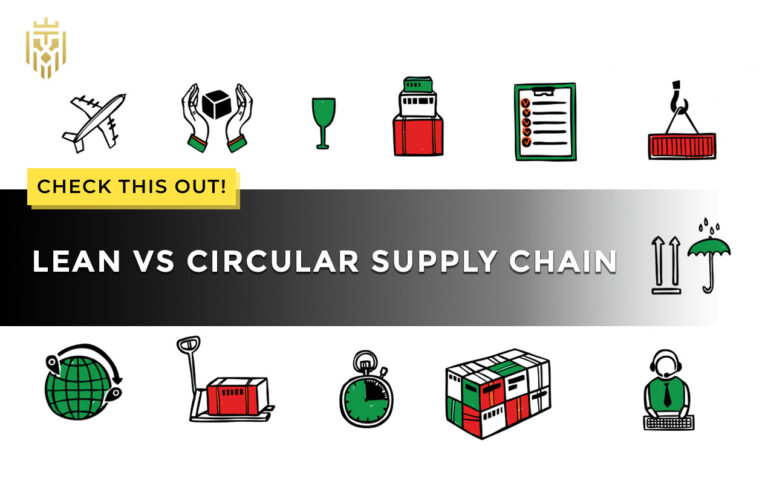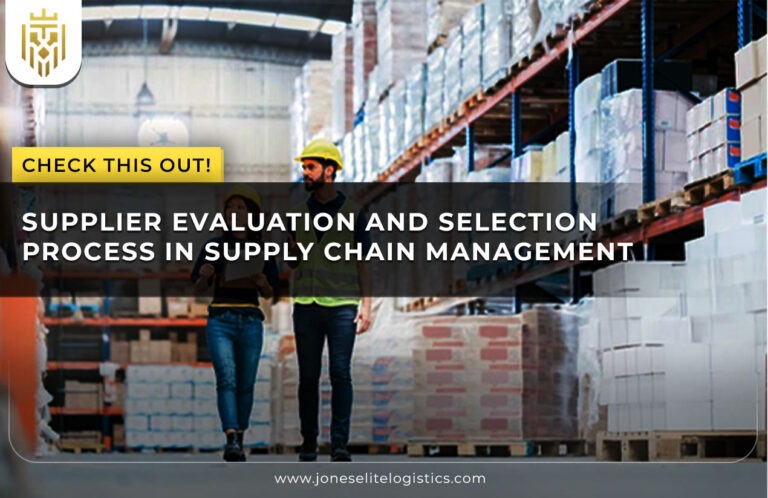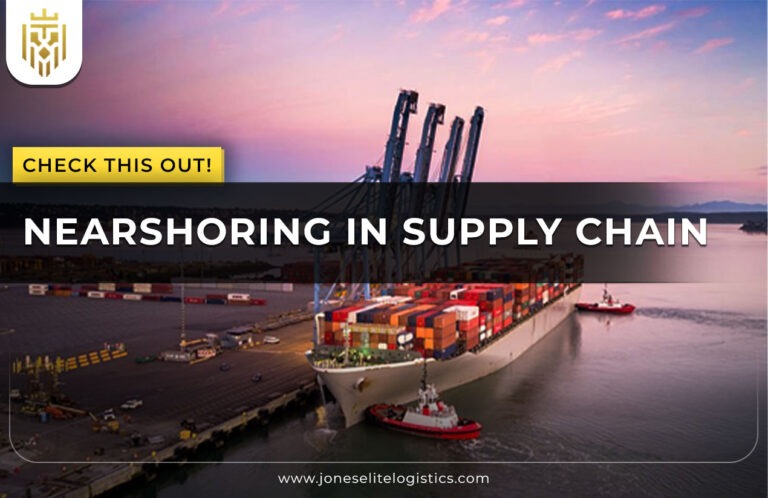What is a Logistics Service Provider?
Logistics Service Providers (LSP) manage warehousing, order fulfilment, inventory tracking, shipping, returns processing, and payment management. These logistics services enhance operational flow, reduce delivery errors, and increase the overall efficiency of the supply chain. As a reliable service provider, they ensure that businesses meet customer expectations with timely and accurate deliveries.
What Does a Logistics Service Provider Do?
A logistics service provider is involved in warehousing, order fulfilment, inventory management, freight shipping, return processing, and managing payments on behalf of its client. All these logistics services increase the efficiency of the whole supply chain, thus reducing delivery mistakes. It would enable the client to deliver goods to customers on time and accurately, as most customers expect, because it is a reliable service provider.
Why do Businesses use a Logistics Provider?
Businesses choose a logistics service provider to streamline logistics services, improve cost efficiency, and enhance supply chain operations. A reliable service provider boosts customer satisfaction and enables scalable, flexible growth through expert logistics management.
Optimized Supply Chain
A business wants to create a supply chain with a logistics service provider for cost savings as well as productivity improvement. With reliable logistics services, businesses can experience much faster deliveries, accurate order processing, and service standards to which they are unaccustomed. The service provider has become a partner in the development of a competitive position because of the customer satisfaction it provides.
Industry Networking and Experience
Provided by a logistics service provider are access to industry networks, expertise in logistics planning, and transport solutions. For a business to get rid of its costs and improve its supply chain efficiency, it can leverage a third party logistics provider. Such service providers consistently deliver thanks to their properly structured experience and infrastructure.
Scalable Growth and Efficiency
Engaging a logistics service provider supports scalable operations and enhances overall business efficiency. With streamlined logistics services such as warehousing and transportation, companies reduce costs while focusing on their core activities. It provides flexibility and rapid adaptability from a third-party logistics provider within a dynamic supply chain environment.
Why do Businesses Choose to Manage Logistics Internally?
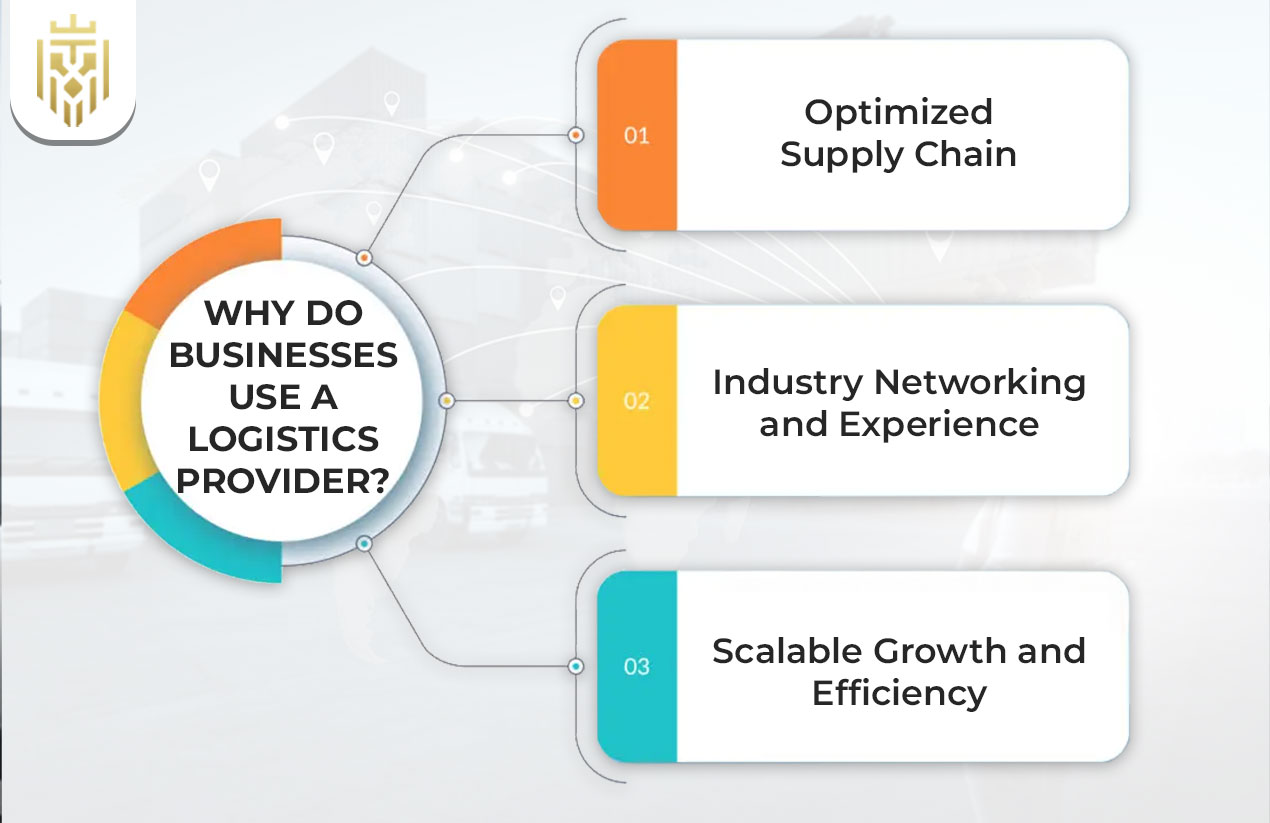
Some businesses manage logistics internally for better control over the supply chain, improved cost tracking, and enhanced service quality. By avoiding dependency on a logistics service provider, they retain decision-making power over fulfilment and shipping operations. However, all this makes operations more expensive in terms of investment in infrastructure and manpower to do so.
What is the Difference between Self Shipping and Third Party Logistics Providers?
Self-shipping gives businesses control of logistics because it allows them to perform packing, shipping, and warehousing tasks themselves. On the other hand, third-party logistics provides economic and scalable logistics services, thereby relieving the operations workload. A logistics service provider brings structured solutions that are ideal for businesses with growing or complex supply chain needs.
Types of Logistics Service Provider
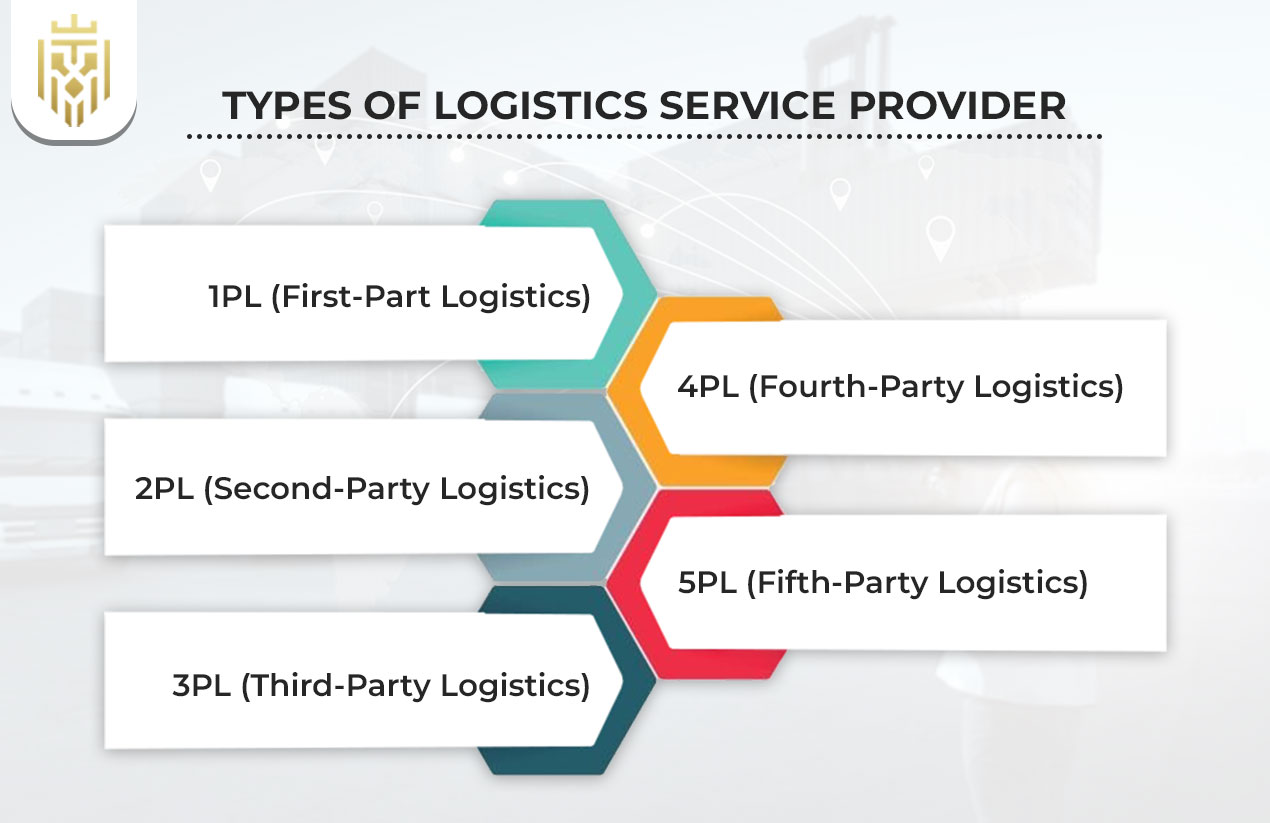
The various logistics service providers are 1PL, 2PL, third party logistics providers (3PL), 4PL, and 5PL. Each service provider offers specific logistics services tailored to optimize different levels of the supply chain.
1PL
A first-party logistics service provider (1PL) controls every logistics operation within itself including warehousing, transportation, and inventory services. Such companies do not rely on third-party logistics services and maintain a complete management of their supply chain. This is a self-managed setup which does not employ the participation of the third-party service provider.
2PL
A second-party logistics service provider (2PL) is a form of dedicated transportation and includes services such as freight or shipping for movement of goods from one point to another, without necessarily including warehousing or order processing. This would be the best type of service provider that would suit a business needing its own independent transit solution in the supply chain.
3PL
In fact, a third party logistics provider (3PL) supports the client with a broad array of logistics services like warehousing, transportation, order fulfilment etc. This enables the companies to concentrate on their prosperity while it takes care of the streamlining operations. Thus, this kind of logistics service provider also adds speed and quality into the supply chain.
4PL
These multi-logistics operations result in managing an entire supply chain by a fourth-party logistics service. A 4PL works strategizing as a consultant and integrating computers and software. The logistics provider offers planned optimization beyond traditional roles of a 3PL, for instance, providing services in such functions as warehousing, shipping, and inventory management.
5PL
A fifth-party logistics service provider manages and integrates multiple 3PL and 4PL networks and optimises the end-to-end of the supply chain using data-driven strategies. This makes procurement, route planning, analytics, and network management all part of their logistics services. Leading 5PL service providers offer enhanced visibility and simplified performance.
Tasks of Logistics Service Providers
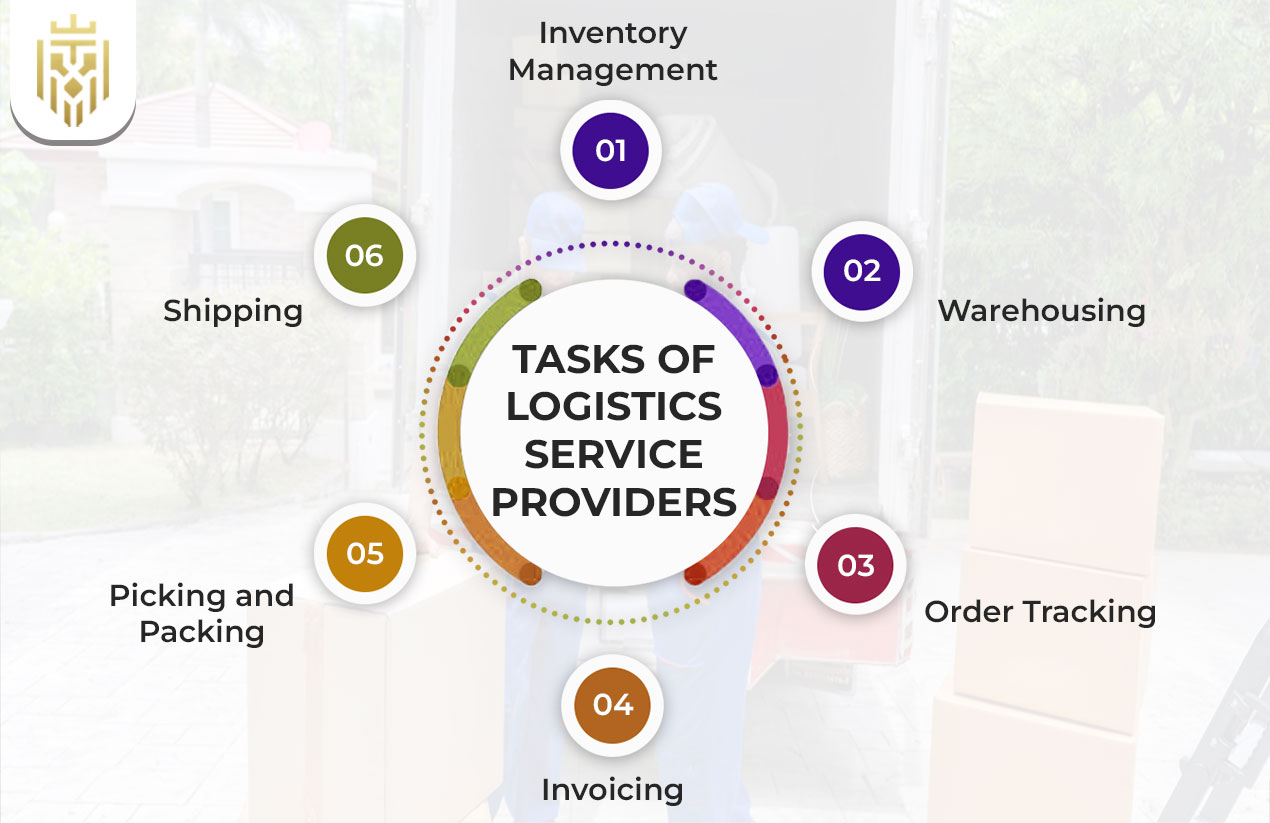
A logistics service provider handles inventory management, warehousing, picking, packing, shipping, tracking, and invoicing. These logistics services ensure smooth supply chain operations and help businesses deliver efficiently through professional service provider support.
Inventory Management
A logistics service provider provides appropriate controls over inventory through stock tracking, warehousing, and returns management. All these kinds of services provided by the logistics help minimize overstocking and also improve accuracy in dealing with orders along the entire supply chain. A trustworthy service provider thus adds value in terms of better visibility and informed decision-making in inventory operations.
Warehousing
These logistics services ensure that warehousing is done for receiving all the goods, storing products, inventory management, preparing orders, etc. This works to supply reliable and consistent performance in the entire supply chain. The service provider ensures operational efficiency and customer satisfaction, a very central role in all activities.
Order Tracking
A logistics service provider provides enabling digital tools to allow a company to track every order in real-time and delivery tracking. Such logistics services would increase the accuracy of those deliveries and decrease the error rate while improving the overall experience with the supply chain. The service provider sponsors businesses in developing expectations around the clients with our mirror transparency and responsiveness.
Invoicing
A logistics service provider is responsible for the invoicing processes to ensure the right prices for shipping, warehousing, and fulfilment activities. Such logistics services are helping the finance operations and building trust in the supply chain. An experienced service provider fosters transparency and accountability of the business transactions.
Picking and Packing
A logistics service provider does the order fulfilment of picking items from an inventory and packing them reliably for transportation. Such logistics services substantially impact delivery accuracy and customer satisfaction. The service provider oversees the unbroken flow of this important stage in the supply chain.
Shipping
A logistics service provider will manage the entire shipping cycle, from dispatch to delivery, being inclusive of tracking and reverse logistics. These logistics services help in moving goods efficiently and ensuring timely deliveries through the supply chain. The service provider guarantees end-to-end shipping excellence and operational reliability.
How do I Choose a Logistics Service Provider?
To select a suitable logistics service provider, expertise, infrastructure, service coverage, and cost effectiveness should be taken into account. The right service provider must be inline with your supply chain ambitions and provide scalable logistics solutions. A reliable partner improves your logistics reliability, thus impacting the long-term prosperity of your business.
Benefits of Logistics Provider
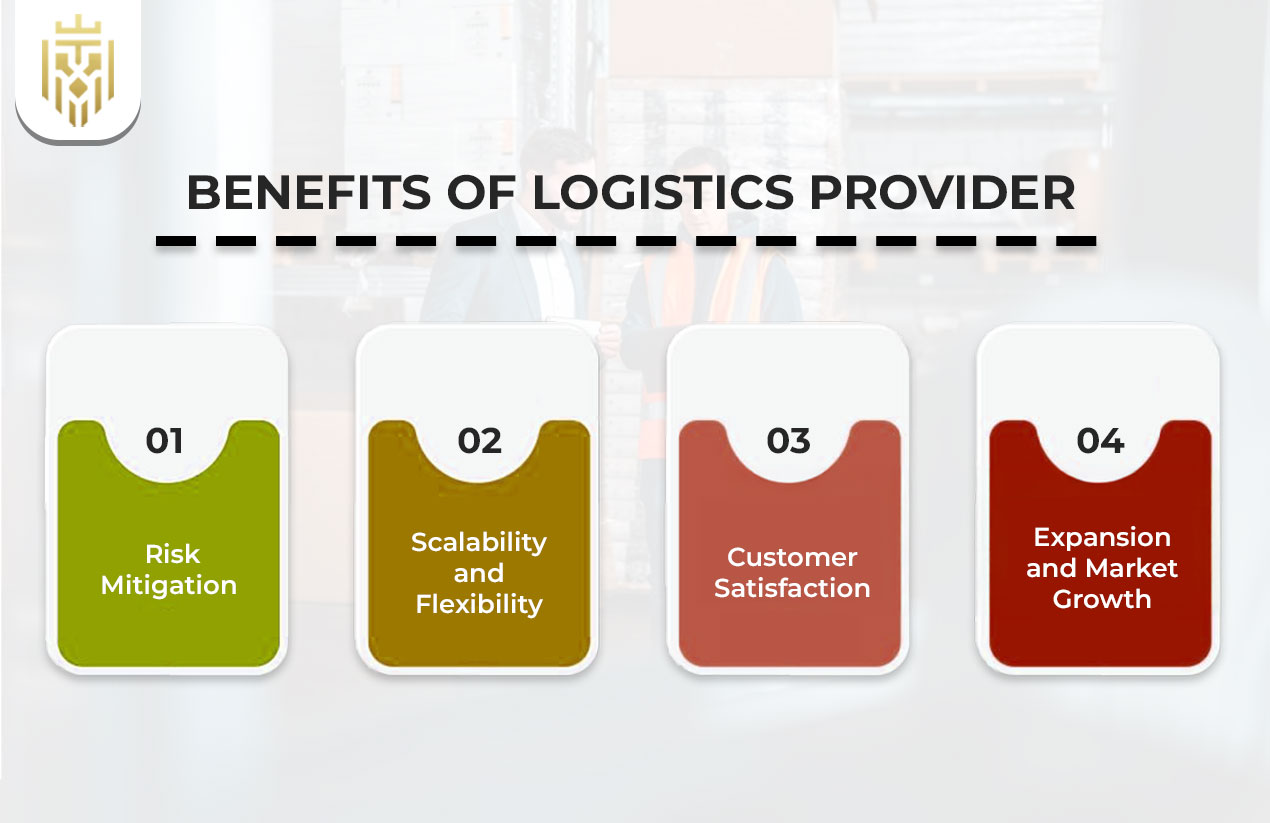
A logistics service provider offers risk mitigation, scalability, improved customer satisfaction, and growth opportunities. Their logistics services enhance overall supply chain efficiency, making them a vital service provider for business success.
Risk Mitigation
A trustworthy logistics service provider strengthens risk mitigation across the supply chain by ensuring continuity and resilience throughout disruptions. With services enabling planning, contingency management, and constant service delivery, the logistics provider assists the businesses to remain adaptable and responsive in rapidly changing environments.
Scalability and Flexibility
A logistics service provider provides scalable and flexible logistics services that grow along with your business needs. As a service provider, they can adapt through seasonal peaks or shifts in market demand. Supply chain enhancement; reduced costs and improved customer service.
Customer Satisfaction
Through streamlined logistics service, a logistics service provider strengthens customer satisfaction through accurate and prompt deliveries. As a trusted service provider, it builds reliability and trust in its service; these aspects positively change the customer experience and brand perception in the supply chain.
Expansion and Market Growth
A logistics service provider plays an important role in the expansion of businesses through cost-effective and scalable logistics service handling. An enabler for growth, the service provider ensures faster market entry with optimised supply chain performance. With improved logistics backing and operational agility, businesses reach new milestones.
FAQs
1) What is a Logistics service Provider?
Logistics Service Providers (LSP) manage warehousing, order fulfilment, inventory tracking, shipping, returns processing, and payment management. These logistics services enhance operational flow, reduce delivery errors, and increase the overall efficiency of the supply chain.
2) What are the types of Logistics Service Provider?
The logistics service providers are 1PL, 2PL, third party logistics providers (3PL), 4PL, and 5PL. Each service provider offers specific logistics services tailored to optimize different levels of the supply chain.
3) How do I Choose a Logistics Service Provider?
To select a suitable logistics service provider, expertise, infrastructure, service coverage, and cost effectiveness should be taken into account. The right service provider must be inline with your supply chain ambitions and provide scalable logistics solutions.
4) What is the Difference between Self shipping and Third Party Logistics Provider?
Self-shipping gives businesses control of logistics because it allows them to perform packing, shipping, and warehousing tasks themselves. On the other hand, third-party logistics provides economic and scalable logistics services, thereby relieving the operations workload.






